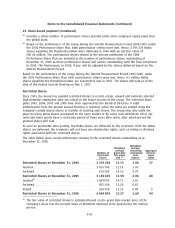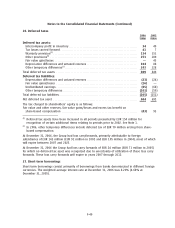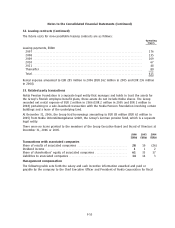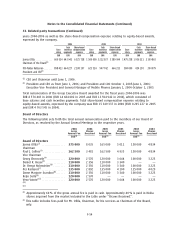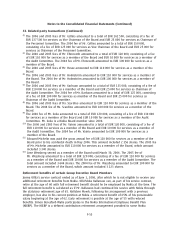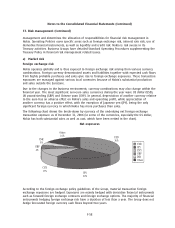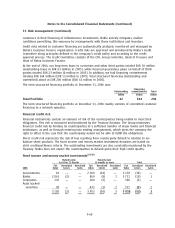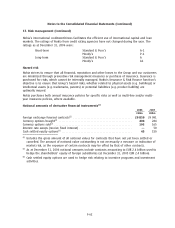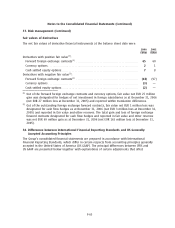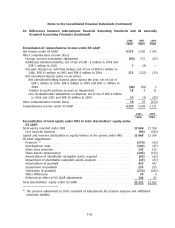Nokia 2006 Annual Report Download - page 192
Download and view the complete annual report
Please find page 192 of the 2006 Nokia annual report below. You can navigate through the pages in the report by either clicking on the pages listed below, or by using the keyword search tool below to find specific information within the annual report.
Notes to the Consolidated Financial Statements (Continued)
36. Principal Nokia Group companies at December 31, 2006
Parent Group
holding majority
%%
US Nokia Inc. ************************************************************ — 100.00
DE Nokia GmbH*********************************************************** 100.00 100.00
GB Nokia UK Limited ****************************************************** — 100.00
KR Nokia TMC Limited ***************************************************** 100.00 100.00
CN Nokia Telecommunications Ltd ****************************************** 4.50 83.90
NL Nokia Finance International B.V****************************************** 100.00 100.00
HU Nokia Kom´arom Kft **************************************************** 100.00 100.00
BR Nokia do Brazil Technologia Ltda **************************************** 99.99 100.00
IN Nokia India Ltd ******************************************************** 99.99 100.00
IT Nokia Italia S.p.A. ***************************************************** 100.00 100.00
Associated companies
Symbian Limited************************************************************ — 47.90
A complete list of subsidiaries and associated companies is included in Nokia’s Statutory Accounts.
37. Risk management
General risk management principles
Nokia’s overall risk management concept is based on visibility of the key risks preventing Nokia from
reaching its business objectives. This covers all risk areas; strategic, operational, financial and hazard
risks. Risk management at Nokia is a systematic and proactive way to analyze, review and manage
all opportunities, threats and risks related to Nokia’s objectives rather than to solely eliminate risks.
The principles documented in Nokia’s Risk Policy and accepted by the Audit Committee of the Board
of Directors require risk management and its elements to be integrated into business processes. One
of the main principles is that the business or function owner is also the risk owner, however, it is
everyone’s responsibility at Nokia to identify risks preventing us from reaching our objectives.
Key risks are reported to the business and Group level management to create assurance on business
risks and to enable prioritization of risk management implementation at Nokia. In addition to
general principles, there are specific risk management policies covering, for example, treasury and
customer finance risks.
Financial risks
The key financial targets for Nokia are growth, profitability, cash flow and a strong balance sheet.
The objective for the Treasury function is twofold: to guarantee costefficient funding for the Group
at all times, and to identify, evaluate and hedge financial risks in close cooperation with the
business groups. There is a strong focus in Nokia on creating shareholder value. The Treasury
function supports this aim by minimizing the adverse effects caused by fluctuations in the financial
markets on the profitability of the underlying businesses and by managing the balance sheet
structure of the Group.
Nokia has Treasury Centers in Geneva, Singapore/Beijing and New York/Sao Paolo, and a Corporate
Treasury unit in Espoo. This international organization enables Nokia to provide the Group
companies with financial services according to local needs and requirements.
The Treasury function is governed by policies approved by the Group Executive Board or its
respective members, as applicable. Treasury Policy provides principles for overall financial risk
F57


